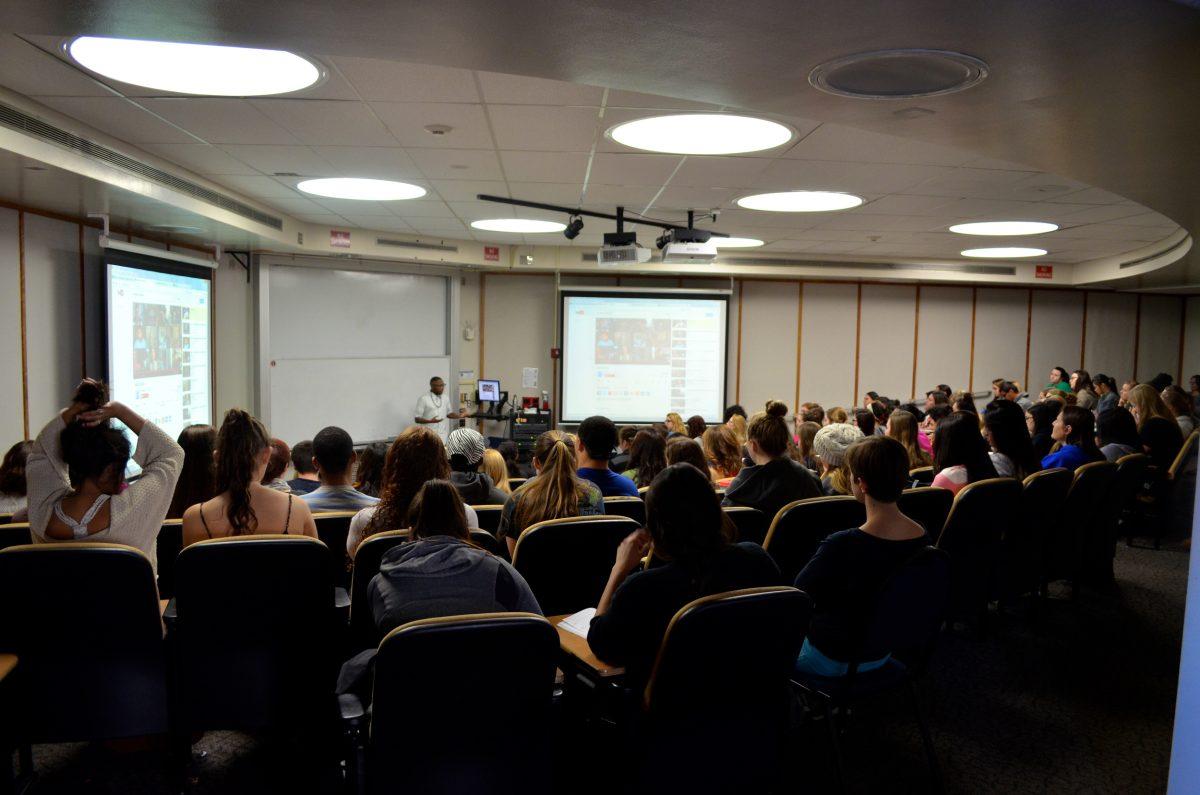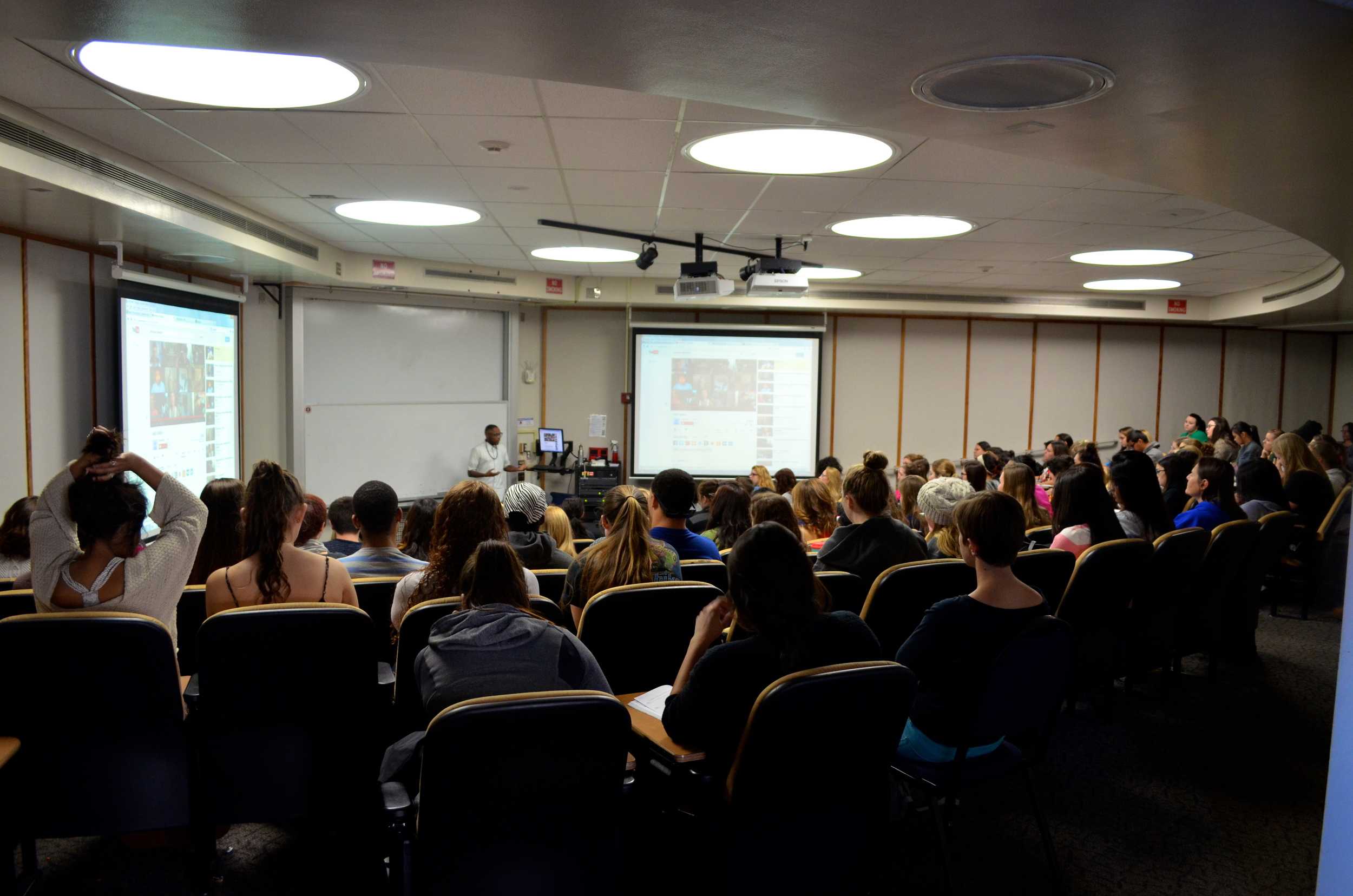Sonoma State University’s 301 Womens’ and Gender Studies lecture series hosted artist and activist Kortney Ryan Ziegler. Ziegler’s presentation “Black, Trans and Indie” discussed his work in the Black Transgender community and other resources for information on this topic.
Typically, lecture halls are used for academically oriented classes or lectures; but during Ziegler’s visit the mood was considerably different.
There was a definite sense of respect in the room and clear reactions to statements were not only heard, but felt. After a few considerably awe-provoking video clips, there was a pronounced silence in the room shared by everyone.
The first slide in Ziegler’s power point featured pictures of well-known Black Trans representatives such as Laverne Cox from “Orange is the New Black” and Isis King, a contestant on “America’s Next Top Model.”
“Black Transgender people are the most visible figureheads of mainstream Trans representation,” said Ziegler, “While many of them share different backgrounds, they come together as independent artists.”
Ziegler went on to discuss the 1920s social movement known as the Harlem Renaissance, in which black people asserted their own agency to control their image.
He compared this to a newer social movement that is quickly growing, which some refer to as the Black/Transgender Renaissance.
The Black Arts Movement (BAM) began in 1965 following the assassination of Malcolm X and spanned or lasted about 10 years.
It resulted in a new representation of black voices in society as well as English literature, which previously had been dominated by white authors.
Ziegler says that many consider the time after the BAM to be more influential than the initial conception.
Ziegler presented a powerful, informative slideshow in which he discussed various figures in Black/Transgender history. This included Gladys Bentley, a blues singer in the 1920s and Bessie Smith, a member of a Vaudeville theatre troupe who got a record deal with Columbia.
He also discussed a group of black queer women writers who, out of necessity, started their own printing press at a kitchen table.
Their location stands as a symbol of their oppression not only as black writers, but as women. Some titles that were published by this group include “This Bridge Called My Back: Writings by Radical Women of Color” and “Home Girls: A Black Feminist Anthology.”
Ziegler attended UC Santa Cruz and studied film; he continued his education at Northwestern University where he became the first student ever to receive a Ph.D. in African American studies at the university.
In 2003, Ziegler began a blog called “blac(k) ademic” which rose to the top of the feminist blogosphere.
During his presentation, he showed an excerpt of his film “Still Black,” a portrait of black trans* men. The video won audience choice of best documentary at the Reelout film festival in 2009 and the Isaac Julien experimental award in 2008.
Ziegler has been involved with numerous projects concerning Black/Transgender activism; his work has landed him numerous awards and spots on top lists, including Transgender 100 and The Advocate magazine’s “Top 40 under 40.”
At the end of his talk, he asked for any questions from students. One attendee asked what Ziegler’s wish for the ultimate outcome of the Black/Transgender Renaissance would be.
Ziegler said to ultimately make the world a less hostile and more caring place, where everyone can walk the streets safely and feel loved.
WGS 301 is a one-unit, pass or fail course held at noon every Thursday. Every week the class features a different speaker representing feminist and queer studies.
It is an open class where anyone is welcome to sit in and outside guests are encouraged to attend.





![[Both photos courtesy of sonoma.edu]
Ming-Ting Mike Lee stepped in as the new SSU president following Sakakis resignation in July 2022](https://sonomastatestar.com/wp-content/uploads/2024/04/CC4520AB-22A7-41B2-9F6F-2A2D5F76A28C-1200x1200.jpeg)



























